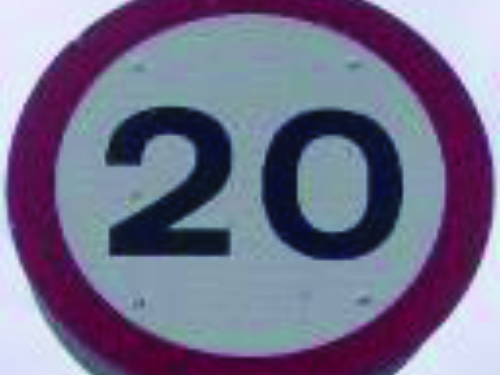
A number of Council’s have adopted 20’s Plenty policies – making the default speed limit on residential roads 20mph rather than 30mph.
Evidence shows vehicles travelling at 20mph cause 20% fewer casualties, 25% less pollution and 50% less noise than a car travelling at 30mph.
Currently 26 million people in the UK live in an area where 20mph is accepted as the normal speed limit on a residential road. You can find a list of the Council’s that have adopted 20mph as the norm here on the website of the 20s Plenty Organisation.
There are still a number of Local Authorities who are yet to pass a 20’s Plenty Motion through their Council.
Below are a couple of Council Motion templates you can adapt for your area.
The first is for local authorities with powers to create 20mph zones – directly calling for their introduction. The second is for Council’s (for instance Towns and Parishes) that do not have the powers to introduce 20mph limits directly calling on the relevant principal authority to introduce 20mph limits on residential streets.
Motion for Unitary, County, City, Metropolitan Borough and London Borough Councils.
Council notes that:
- Speed limits on Britain’s Roads are 60% higher than in Europe.
- More than half of all accident casualties occur on roads with 30mph limits.
- A pedestrian is 7 times more likely to die if they are hit by a vehicle travelling at 30mph than they are at 20mph, rising to 10 times more likely if aged 60 or older.
- Reducing speed limits on residential roads has been found to reduce air pollution, the incidents of accidents, and the numbers of fatalities and serious injuries that result.
- Over 20 million citizens live in local authorities in the UK which have adopted or are adopting a default speed limit of 20mph on residential roads.
- The default speed limit of 20mph has been adopted by other local authorities without the need for the implementation of physical calming measures.
- Road safety experts from 130 countries adopted the ‘Stockholm Declaration’ recommending 20mph as the preferred default speed limit on residential roads in February 2020, and this was endorsed by the UN General Assembly in August 2020.
Council further recognise that:
- If we are to build back better after Covid-19, one of our key concerns must be to address all aspects of public health.
- This should include lowering the default speed of motor vehicles on residential roads to reduce the danger they pose to residents and the pollution they emit.
- Such a measure should be comprehensive and cover all residential roads in the Council Area – unless there are specific and unique exceptions that necessitate a faster speed limit.
Council therefore resolves to:
- Establish an all-group working party to seek to implement a Council-wide 20mph speed limit on residential roads as soon as possible. This should include identifying roads where the lower speed limit may not be appropriate, and exploring enforcement measures such as average speed cameras and Community Speedwatch initiatives.
- Ask the Chief Executive to write to the leaders of all other Councils in the region that haven’t already implemented 20mph speed limits as the default in their authority area, and to write to Highways England requesting that speeds are reduced on sections of the motorway network in our Council area to tackle pollution.
Motion for Towns, Parishes and Districts
This Council:
• Supports the campaign to introduce 20mph as the default speed limit on residential roads across the [INSERT PRINCIPAL COUNCIL NAME] area
• Calls on [INSERT PRINCIPAL COUNCIL NAME] to implement a 20mph speed limit in [INSERT YOUR COUNCIL NAME]
Council therefore resolves to:
• Write to [PRINCIPAL COUNCIL] to request a default 20mph speed limit on residential streets throughout our county – identifying roads where the lower speed limit may not be appropriate.